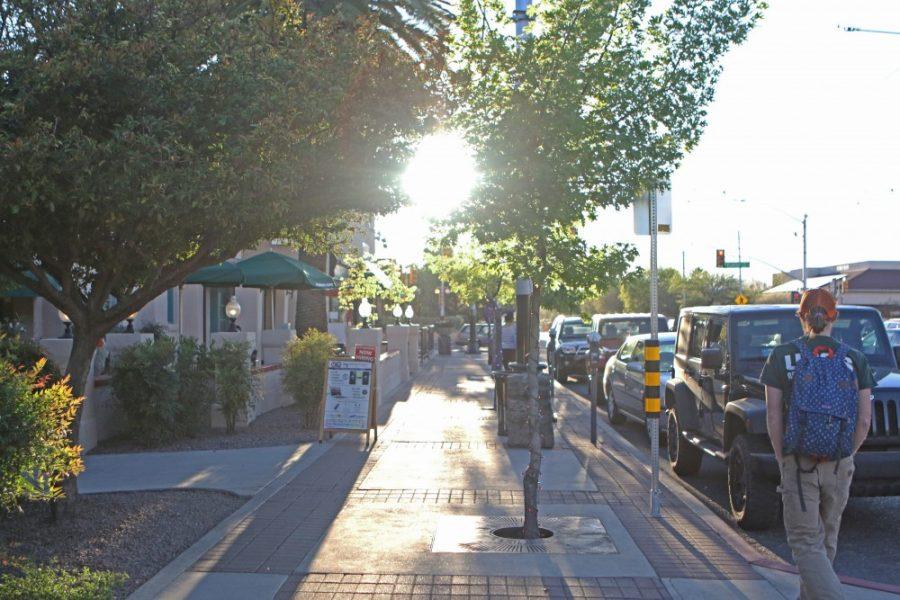As difficult as it might be for businesses to budget the new expenses, student employees need the minimum wage raise.
Proposition 206 was passed last November in order to raise the minimum wage to $10 an hour by 2017, then incrementally increase it to $12 by 2020. This was proposed with many corporate institutions that pay minimum wage in mind, including fast food and retail jobs. However, the proposition also affects small businesses, despite the relatively higher burdens that would be imposed on those businesses.
Small business owners on University Boulevard have shown concerns about the minimum wage increase because university students are many of the shops’ staff and regular customers.
RELATED: University business owners concerned about minimum wage boost
These shops, especially the restaurants, are easily accessible for students. Within walking distance from the university, high volumes of students come through the eateries on University Boulevard. However, having a restaurant on University comes with an expectation from many students that the food will be affordable.
Unfortunately, to generate income to pay employees a higher wage many of these shops might have to increase the price on many of their menu items.
While this might be hard for some business owners, and frustrating to customers, it comes down to the students working behind the counter.
The cost of living is continually on the rise, meaning people in minimum-wage jobs can hardly afford to live off the money they make. This especially becomes true when it comes to going to school and working to make at least enough money to cover essential costs.
Many students pick up jobs in order to pay for rent, utilities, food and tuition. In these minimum-wage jobs, students often have to balance their school and work schedules together, and sometimes they end up working two jobs just to cover their basic needs.
Owners now face the tough decision of keeping both their customers and employees happy. They have to decide if an item customers now pay $7 for will still see the same demand if it was sold for $9.
Looking back, the proposition took mostly large fast food chains into account. Many large corporate fast food chains have the income to pay their employees a higher wage. Many small business owners, although they abide by the same rules, do not have the same luxury.
Economically, it helps business owners put money back into the system. Paying staff a higher wage means employees have more money to spend once they get paid. Students working in these minimum-wage jobs could potentially work fewer hours to make the same amount of money or work the same amount to make more, meaning they can be more efficient with their time.
RELATED: Move to protect Dreamers now
It helps the general student population to have the potential to make more money and live more comfortably.
One problem that might be imposed on these businesses is an inability to employ as many students due to the wage increase. Jobs on campus and in the surrounding areas, such as University Boulevard, see a high demand from students looking to work while attending the UA.
While $2 might not seem to make much of a difference, it can change how a student budgets time and money. Many students work alongside going to school, and working while going to school adds to the significant amount of stress they already experience.
Business owners on University Boulevard are posed with a challenge, but students making minimum wage need the increase in order to cover their bases.
The cost of living for a student isn’t cheap and it continues to rise more and more, meaning more students need to work to keep their budget in the black. A couple extra dollars can really make the difference for students.
Follow Leah Gilchrist on Twitter.









